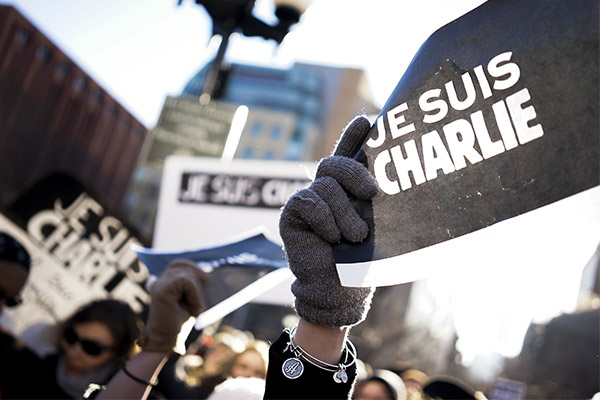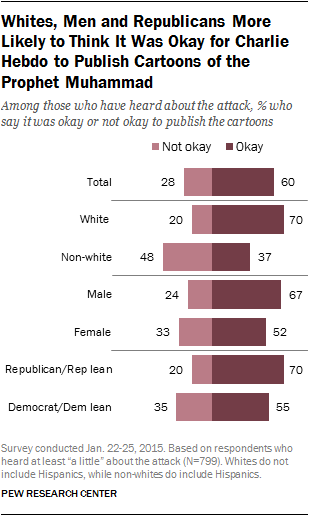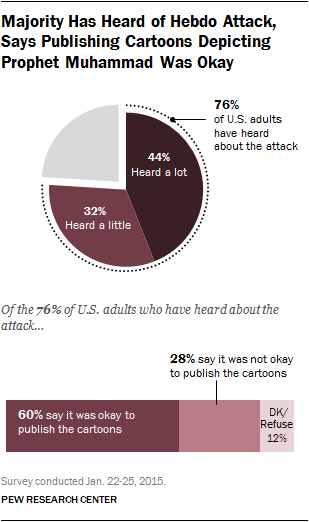
Gender, Race Important Factors in Debates about Charlie Hebdo and Religious Respect
- By Alison Lesley --
- 03 Feb 2015 --

Pew Research Center found that gender and race played a huge role in whether or not respondents thought that publishing the cartoons was acceptable in the Charlie Hebdo incident.
A majority of people in the U.S. have heard about the attacks on satirical French magazine Charlie Hebdo regarding the publication of cartoons depicting Muhammad, the prophet of the Muslim religion. A recent poll concluded that about 76% of Americans were aware of the attacks, and 70% of those thought Charlie Hebdo should have published the images, mostly citing freedom of expression and freedom of the press. There were also those who thought the magazine had been in the wrong for publishing the images; about 3 in 10 of those who had heard of the attacks said the magazine should have refrained from publishing the images.

The differences between races and genders begin to become obvious when the results of the poll are examined more closely. Whites supported the magazine’s decision to publish the images in the range of about 70%; less than 40% of non-whites were supportive of the decision. Nearly half (48%) of non-white respondents thought Charlie Hebdo had been wrong to publish the images.

The gender gap was not quite as wide as the racial one, with about 67% of male respondents supporting the publication of the images of the prophet, while just over half (52%) of female respondents supported Charlie Hebdo’s publication of the images. The genders also differ in their opposition to the images, with about one-third of women being offended, as compared with just under one-quarter (24%) of men. Other differences were obvious, as well, being apparent along lines of political affiliation and education. Surprisingly, support for Charlie Hebdo’s actions did not vary much across various religious lines.



















